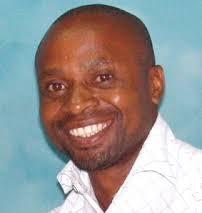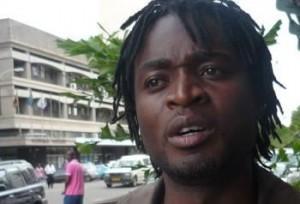Malawi 2014: Vice President’s defection is another headache for Banda – By Frank Jomo

 On May 8, eleven days before Malawi goes to the polls to elect a new president, the country’s VP Khumbo Kachali announced he was quitting the ruling People’s Party. No reason for his resignation was given, nor was there any indication of his next move.
On May 8, eleven days before Malawi goes to the polls to elect a new president, the country’s VP Khumbo Kachali announced he was quitting the ruling People’s Party. No reason for his resignation was given, nor was there any indication of his next move.
Four days later on May 12, Kachali announced he was joining the opposition Democratic Progressive Party. This is the same party that had booted him out in 2010 alongside the country’s current President Joyce Banda. The two were accused of forming parallel structures to those of the ruling DPP. The pair went on to jointly form the People’s Party and two years down the line; Kachali was made the country’s Vice President after Banda assumed leadership of Malawi following the death of Bingu wa Mutharika.
But things changed earlier this year when Banda appeared to snub Kachali by opting for the youthful Sosten Gwengwe to partner her as a running mate in the May elections. The two year political romance between Kachali and Banda had proved to be little more than a marriage of convenience. Banda, however, had never seemed entirely comfortable working with Kachali, who she seemed to suspect harboured ambitions of one day ruling the country himself.
Since this demotion, Kachali has shunned campaign rallies addressed by President Banda and her People’s Party. He did little to hide his disappointment from the media either, telling reporters that by opting for Gwengwe the President had effectively given him a vote of no confidence.
Following these pronouncements, it was clearly only a matter of time before Kachali would quit the PP. Announcing his intention to rejoin his old party, the DPP, the Vice President told residents of the northern region district of Mzimba (his home district) that they should vote for DPP candidate Peter Mutharika.
By rejecting him as running mate, Kachali said that President Banda had rejected the people of the northern region. In tit-for-tat fashion, he called on people from the north not to give Banda their votes.
“By rejecting me, PP has rejected people of the north. I have held meetings with different presidential candidates and Mutharika stands out as the only one who can develop the northern region. Come Tuesday next week let us all vote for Mutharika.”
The May 20 election is predicted to be the tightest race in the history of the southern African nation. Four of the country’s frontrunners, Joyce Banda of People’s Party, Peter Mutharika of Democratic Progressive Party , Lazarus Chakwera of Malawi Congress Party and Atupele Muluzi of the United Democratic Front, stand a chance of winning the presidency.
Three candidates – Banda, Mutharika and Atupele – come from the southern region and in a country where voting patterns are generally manifested along regional lines, votes from the south will be split among these three contenders. Chakwera comes from the central region but for him to win the elections outright he needs the northern vote.
The northern region therefore holds the key to who will win later this month. As such, all the parties are working to ensure they make inroads there. The move by the DPP to welcome back Kachali into the party is therefore particularly strategic.
But despite Kachali’s northern origin, it is far from certain that his presence will be sufficient to bring the northern vote to the DPP. The people of the northern region are themselves looking for a coveted trophy in this election. And in the absence of a strong challenger from the region itself, the coveted trophy may be the vice presidency. Kachali does not have a chance of wrestling this from the DPP – he joins the party as an ordinary member.
Should the DPP win the elections, the highest position Kachali could get is a ministerial portfolio. But neither is this is automatic as it is the prerogative of the president to choose who he wants in his cabinet.
Among the four leading parties, it is only the Malawi Congress Party which has a running mate from the north. If the people from the region want to have their man in key position, they may opt for the MCP. In addition, the wife of the MCP leader (Lazarus Chakwera) also comes from the region.
Kachali has joined the DPP just days after US-based Afrobarometer opinion poll tipped Peter Mutharika as the likely winner in the forthcoming elections. The survey was carried out between March and April, way before Kachali made a move to join the party. If the DPP wins, it probably won’t be because Kachali helped it garner more support, but simply because the party appeals to a broader swathe of Malawians.
In fact, Kachali’s latter day conversion to DPP member is probably a result of personal opportunism and greed – associating himself with a party lately seen as being the front runner.
The People’s Party on the other hand should not be overly concerned with the electoral consequences of Kachali’s resignation. Its major concern should be what this resignation says about the leadership of the party: In the last year the party has lost three vice presidents. First to resign was Cassim Chilumpha, who was the vice president responsible for the central region. His resignation was followed by that of Sidik Mia who was vice president responsible for the southern region. And the latest is that of Kachali – the country’s vice president and also the PP’s representative responsible for the northern region.
This chain of resignations has dented the image of a party campaigning on a national platform. The major problem of the People’s Party therefore is not the resignation of Kachali per se, but rather the effect it will have on its image as a strong and united political force. Kachali’s resignation will have little effect on the regional patterns of voting in Malawi, but may succeed in further soiling the image of the party as a competent custodian of national government.
Frank Jomo is Malawian journalist. This article was commissioned via the African Journalism Fund.







An excellent-article on a country in which I have a deep interest and for which I have a great affection!
Michael Sander
An excellent article
Joyce Banda is a very strong women She just keep going. since the first and second mates of the ship have disappered she find a new crew to take over from the munitious. Maybe this lesson will give Joyce Banda more discipline over her remaining contenders. You’re with me or you lose